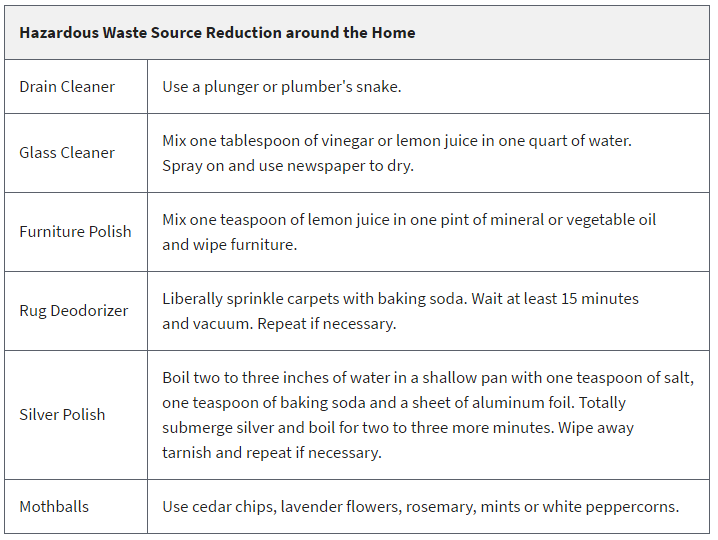Household Hazardous Waste Management
Here's a fact for trivia night: each person in the state of Pennsylvania produces an average of 4 pounds of Household Hazardous Waste per year.
And if every person in PA generates 4 pounds per year, that's a total of 25,000 tons per year statewide!
Household Hazardous Waste consists of items and materials that can pose environmental and public health concerns if not managed properly. Examples of Household Hazardous Waste include:
- Old paint and chemicals used in painting
- Pesticides
- Pool chemicals
- Drain cleaners
- Degreasers
- Car care products
- Motor oil
- Batteries
The PA DEP's website provides the following tips for managing and disposing of hazardous chemicals in your home:
"HHW: HOW SHOULD IT BE MANAGED?
- The best method of managing HHW is to prevent its generation in the first place. This involves selecting the least toxic item "to do the job" and buying only the amounts necessary.
- If the material is still useable (damaged/shelf life expired, etc.) check to see others might be able to use it. Check with community groups to see if they can use the product.
- If the material is not useable and/or if such "outlets" are not available, it should be taken to your community's HHW Collection Program. Such programs will ensure that your HHW is recycled or, otherwise, managed, in an environmentally preferable way, under the hazardous waste provisions of the law.
- If you have used oil, take it to a used oil collection site.
- Spent lead acid batteries can be returned to sellers. In Pennsylvania, dealers are required to take old batteries when new ones are purchased. Spent lead acid batteries may not be discarded in landfills.
- Note - Used oil and intact lead acid batteries from households are not considered to be hazardous wastes in Pennsylvania. However, they are frequently generated in households and are thus often grouped in the household hazardous waste category. They are also frequently included in HHW collection programs.
- If your community does not have a collection program or you must discard the materials prior to the next scheduled event, you may legally discard them in your regular trash pickup, provided:
- You have read the label and complied with any disposal directions.
- Liquids have either been allowed to evaporate (if water based) or absorbed (if non-water based) on some material such as vermiculite, cat litter, or sawdust, so that there are no freestanding liquids).
- The remaining residue has been packaged to prevent leakage while the material is being transported to the disposal facility
- The material is placed out in small quantities, over several collection periods.
- Pharmaceutical Management
- Pharmaceutical Collections
- Instructions for homeowner to dispose of unwanted medication if there is no pharmaceutical collection in your area
- How to Manage Old Propane Cylinders and Tanks
For questions on specific disposal issues, contact a waste management chemist in your DEP Regional Offices. You can get additional information by contacting the PA HHW hotline at 800-346-4242."
Source: http://www.dep.pa.gov/business/land/waste/solidwaste/hazardouswaste/household/Pages/default.aspx
Safer Alternatives for Household Hazardous Wastes
Many of the chemicals used around the home can be replaced with safer home-made alternatives. The EPA's website provides the following examples of how to reduce your use of common hazardous chemicals:

Source: https://www.epa.gov/hw/household-hazardous-waste-hhw